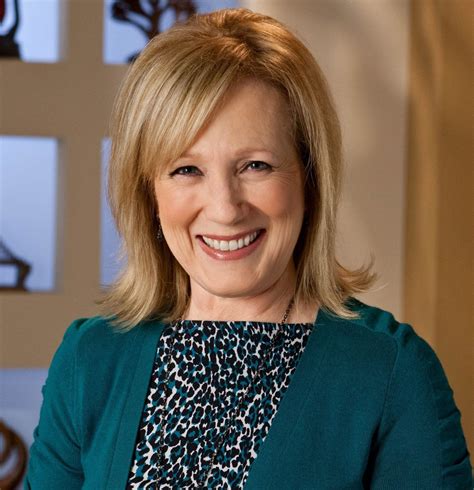A Quote by Billy Graham
When we grieve over someone who has died in Christ, we are sorrowing not for them, but for ourselves. Our grief isn't a sign of weak faith, but of great love.
Related Quotes
And of what should we be afraid? Our captain on this battlefield is Christ Jesus. We have discovered what we have to do. Christ has bound our enemies for us and weakened them that they cannot overcome us unless we so choose to let them. So we must fight courageously and mark ourselves with the sign of the most Holy Cross.
Another misconception is that if we truly loved someone, we will never finish with our grief, as if continued sorrow is a testimonial to our love. But true love does not need grief to support its truth. Love can last in a healthy and meaningful way, once our grief is dispelled. We can honor our dead more by the quality of our continued living than by our constantly remembering the past.
Jesus didn't wait until we got better to die for us. He died when we were in our most unlovely state. The person who doesn't deserve love actually needs love more, not less. If you know someone unworthy of love, that's great! You now have a chance to emulate Christ, because the essence of His love is unconditional.
I think grief is a huge subject; it's one of the things that everybody is going to confront in one way or another. There's been a lot of books written about how Americans have an odd way of trying to defer grief or minimize the need to grieve. People used to have a lot more ritual grief in their lives. For the most part, we think of it as a strictly temporal process: you grieve for a time and then you're over [it], but it's also a spatial process. It travels across a map.
When we speak of faith—the faith that can move mountains—we are not speaking of faith in general but of faith in the Lord Jesus Christ. Faith in the Lord Jesus Christ can be bolstered as we learn about Him and live our religion. The doctrine of Jesus Christ was designed by the Lord to help us increase our faith.
Faith is not our saviour. It was not faith that was born at Bethlehem and died on Golgotha for us. It was not faith that loved us, and gave itself for us; that bore our sins in its own body on the tree; that died and rose again for our sins. Faith is one thing, the Saviour is another. Faith is one thing, and the cross is another. Let us not confound them, nor ascribe to a poor, imperfect act of man, that which belongs exclusively to the Son of the Living God.
You’ll get over it…” It’s the clichés that cause the trouble. To lose someone you love is to alter your life for ever. You don’t get over it because ‘it” is the person you loved. The pain stops, there are new people, but the gap never closes. How could it? The particularness of someone who mattered enough to grieve over is not made anodyne by death. This hole in my heart is in the shape of you and no-one else can fit it. Why would I want them to?
Where I say that He abideth sorrowfully and moaning, it meaneth all the true feeling that we have in our self, in contrition and compassion, and all sorrowing and moaning that we are not oned with our Lord. And all such that is speedful, it is Christ in us. And though some of us feel it seldom, it passeth never from Christ till what time He hath brought us out of all our woe. For love suffereth never to be without pity.
If we don't love ourselves, we would not love others. When someone tell you to love others first, and to love others more than ourselves; it is impossible. If you can't love yourselves, you can't love anybody else. Therefore we must gather up our great power so that we know in what ways we are good, what special abilities we have, what wisdom, what kind of talent we have, and how big our love is. When we can recognize our virtues, we can learn how to love others.





































